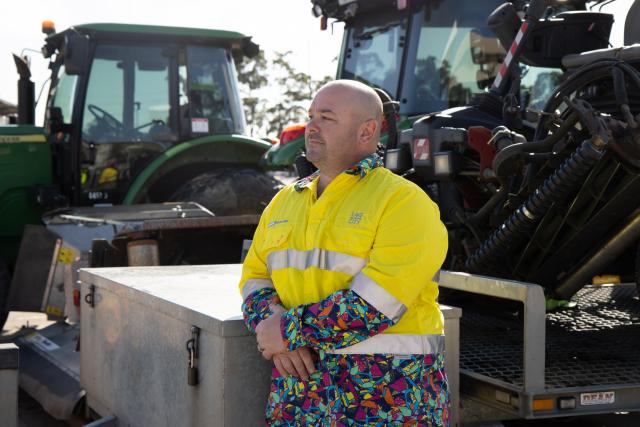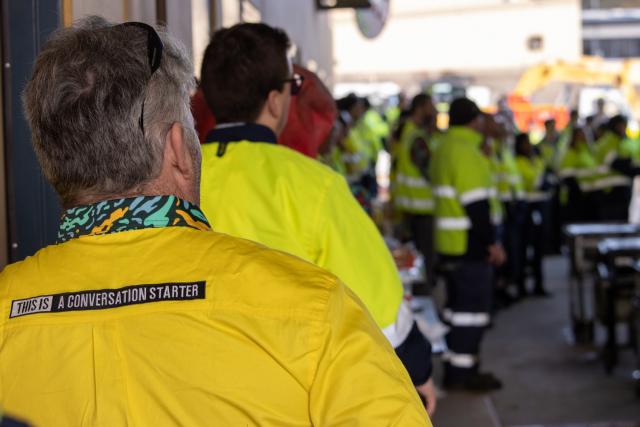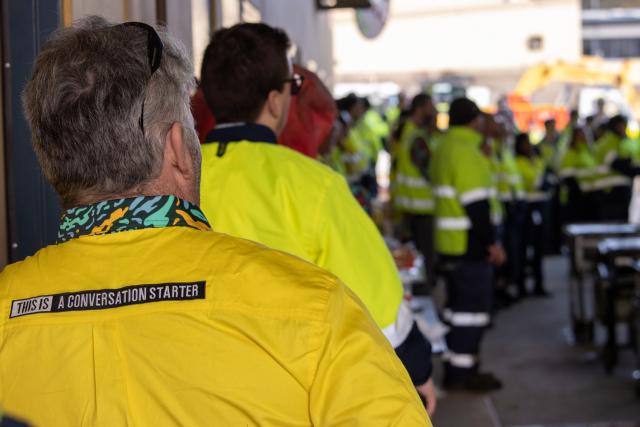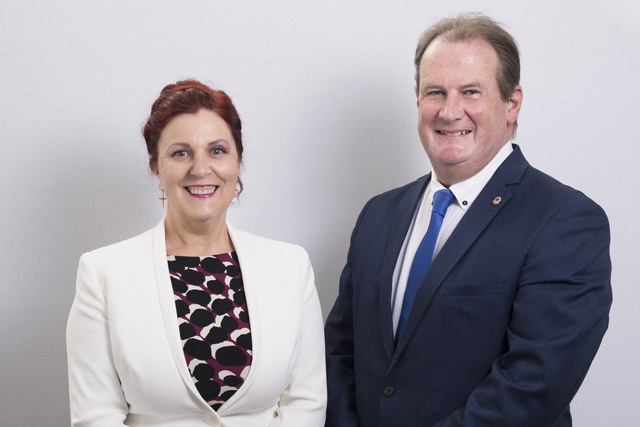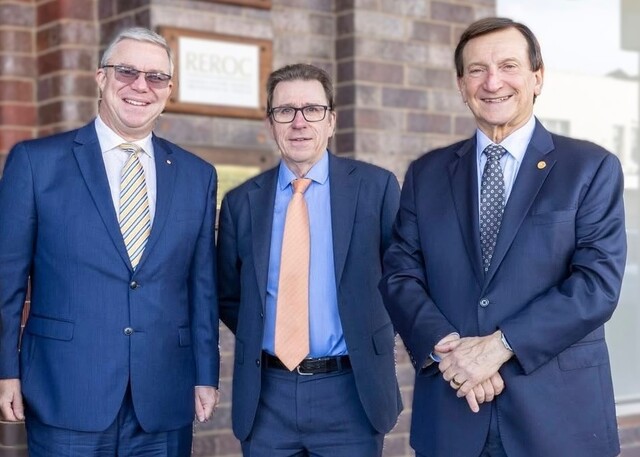Lake Macquarie City Council staff were wearing some louder than usual workwear in recent weeks.
Indoor and outdoor staff alike were sporting bright and funky shirts as a catalyst to “start conversations around mental health”.
It’s a crucial topic given the Australian Bureau of Statistics found more than two in five Australians experienced a mental health disorder at some time in their life.
Risk Management group leader Caitlin Botha said almost 60 staff members, as well as health and safety reps, had the option of wearing the shirts.
“All staff that have completed the Mental Health First Aid Training have been issued a shirt and business cards including a QR code linking to additional resources to help those in need,” Ms Botha said.
“The goal is that these shirts will open up the conversation surrounding mental health, and where needed, the person wearing the shirt can refer people on to further support.”
Chief executive officer Morven Cameron said initiatives like this were vital in breaking down the negative stigma surrounding mental health.
“We want to create an open and honest workplace which normalises discussions about mental illness and mental health – so that everyone feels comfortable, safe and valued,” Ms Cameron said.
“We enjoy our work more and perform our best at work when we take the time to get to know one another and can bring our whole self to work; our history, our family, community connections and our passions.”
Vegetation maintenance coordinator Paul Pafumi was one of the first employees within council to complete the training.
“I have a number of friends and colleagues that are impacted by a wide range of mental illnesses,” Mr Pafumi said.
“I have always thought and asked the question – how could I help?
“This training has given me the knowledge and confidence to offer assistance.”
Council staff were offered the opportunity to attend a two-day Mental Health First Aid course that teaches people how to provide support to someone who is experiencing a mental health problem or crisis.
Organisational Capability Partner Belinda Leck said participants learned about the signs and symptoms of common mental health problems in adults, how to provide help, where and how to get professional help, what sort of help has been shown by research to be effective, and how to provide first aid in a crisis situation.
“So far about 60 staff members have participated and we want to double that number by the end of 2022 so that 10 per cent of the workforce will be up to speed,” Ms Leck said.

